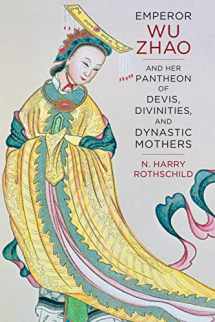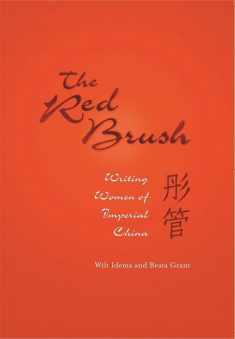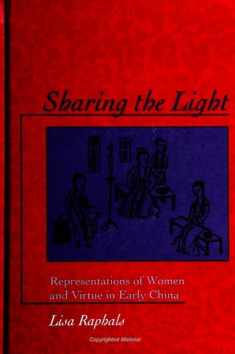
Emperor Wu Zhao and Her Pantheon of Devis, Divinities, and Dynastic Mothers (The Sheng Yen Series in Chinese Buddhist Studies)
ISBN-13:
9780231169387
ISBN-10:
0231169388
Edition:
Illustrated
Author:
N. Harry Rothschild
Publication date:
2015
Publisher:
Columbia University Press
Format:
Hardcover
384 pages
FREE US shipping
Book details
ISBN-13:
9780231169387
ISBN-10:
0231169388
Edition:
Illustrated
Author:
N. Harry Rothschild
Publication date:
2015
Publisher:
Columbia University Press
Format:
Hardcover
384 pages
Summary
Emperor Wu Zhao and Her Pantheon of Devis, Divinities, and Dynastic Mothers (The Sheng Yen Series in Chinese Buddhist Studies) (ISBN-13: 9780231169387 and ISBN-10: 0231169388), written by authors
N. Harry Rothschild, was published by Columbia University Press in 2015.
With an overall rating of 4.4 stars, it's a notable title among other
China
(Asian History, Other Eastern Religions & Sacred Texts, Church & State, Religious Studies, Women's Studies) books. You can easily purchase or rent Emperor Wu Zhao and Her Pantheon of Devis, Divinities, and Dynastic Mothers (The Sheng Yen Series in Chinese Buddhist Studies) (Hardcover) from BooksRun,
along with many other new and used
China
books
and textbooks.
And, if you're looking to sell your copy, our current buyback offer is $0.3.
Description
Wu Zhao (624–705), better known as Wu Zetian or Empress Wu, is the only woman to have ruled China as emperor over the course of its 5,000-year history. How did she―in a predominantly patriarchal and androcentric society―ascend the dragon throne? Exploring a mystery that has confounded scholars for centuries, this multifaceted history suggests that China's rich pantheon of female divinities and eminent women played an integral part in the construction of Wu Zhao's sovereignty. Wu Zhao deftly deployed language, symbol, and ideology to harness the cultural resonance, maternal force, divine energy, and historical weight of Buddhist devis, Confucian exemplars, Daoist immortals, and mythic goddesses, establishing legitimacy within and beyond the confines of Confucian ideology. Tapping into powerful subterranean reservoirs of female power, Wu Zhao built a pantheon of female divinities carefully calibrated to meet her needs at court. Her pageant was promoted in scripted rhetoric, reinforced through poetry, celebrated in theatrical productions, and inscribed on steles. Rendered with deft political acumen and aesthetic flair, these affiliations significantly enhanced Wu Zhao's authority and cast her as the human vessel through which the pantheon's divine energy flowed. Her strategy is a model of political brilliance and proof that medieval Chinese women enjoyed a more complex social status than previously known.


We would LOVE it if you could help us and other readers by reviewing the book
Book review

Congratulations! We have received your book review.
{user}
{createdAt}
by {truncated_author}




